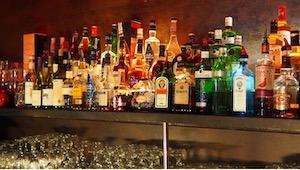client as if they were my only client.
Spring Lake New Jersey Underage Drinking Lawyer

There have been some significant changes recently in the laws of New Jersey about underage drinking. While it is against the law for anyone under 21 to consume alcohol or even just have it in their possession, the police in Spring Lake can only give written warnings to those who violate the law. The police can still intervene if they find underage drinking, but no criminal penalty is associated with breaking the law.
The Spring Lake underage drinking attorneys at Tara Breslow-Testa and Associates can review your situation, explain your options, and protect your rights. In fact, adept criminal defense attorney Tara Breslow Testa handles each case herself. She gives personalized attention to her clients – something you don’t see with many larger defense firms. Call us today at (732) 784-2880 or contact us online to schedule your consultation.
Legal age for Alcohol
Like every other US state, New Jersey’s legal age for alcohol consumption is 21 years. So, if you are not yet past your 21st birthday in Spring Lake, you will be violating the law if you have alcohol in your possession or consume it. These legal restrictions on the alcohol consumption age have some exceptions. Those who work in a job that requires handling alcohol, a hotel, bar, or restaurant, for example, can possess alcohol for work duties. Religious observations that involve the consumption of some alcohol are also exempted from the law.
Restrictions
Despite the recent changes in how the law is enforced, the law does still clearly forbid the possession of alcohol by anyone under 21 in any of the following locations:
- A school, public or private
- On public transportation, like buses, trains, or airplanes
- A public place such as parks, beaches, or streets
- Places of public assembly for music or entertainment
- In a motor vehicle, including a car or motorcycle
Warning System
Before 2021 when the laws were changed, anyone under 21 who was consuming or possessing alcohol could be charged with a disorderly persons offense. The new law calls for written warnings from police officers who encounter underage drinking. The law requires that the police send a copy of the warning to a parent, guardian, or person with legal custody of anyone under 18 who is caught with alcohol.
The new law says that a second violation will also result in a written warning. Part of the second warning includes providing the underage drinker with information about social and community services that help raise awareness about alcohol consumption and offer treatment for alcohol abuse, such as:
- Mentoring services
- Tutoring opportunities
- Counseling
- Faith-based or community initiatives
Teens under 18 will also have the second warning, plus the information about social services related to alcohol, sent to their parent or guardian.
On the third or subsequent violations, the process remains much the same. The officer who issues the write-up for the underage drinking violation again provides information about social services related to alcohol abuse and treatment options. For the third violation, police officers are to send the personal contact information of the violator to the community or social service organization. The law allows the alcohol awareness and treatment program to contact the underage drinker.
It’s important to note, though, that just because the social service or community alcohol-related organization is given contact information for the person who was drinking while under the legal drinking age, there is no legal duty or obligation placed upon the person to follow through with any counseling, treatment, therapy, or to take any other action. The law provides explicitly no legal consequences or penalties for failure to engage in any program of education or counseling with the group or organization to which the officer referred the offender.
Limitations on Law Enforcement Action
The police can indeed stop an underage drinker and issue the above warnings. Still, the law is clear that law enforcement is not allowed to use the occasion to search for the person or the property of the underage drinker. Law enforcement is specifically instructed under the new law that the odor of alcohol or even the unconcealed possession of alcohol by a minor does not constitute reasonable suspicion to allow the officer to conduct an investigatory stop. Even the visible presence or odor of alcohol is not probable cause to search the person.
Get Legal Advice
While the changes to the law make it so that you, or your teen, won’t face any criminal charges related to underage drinking, that doesn’t mean the law doesn’t exist. It continues to be a crime to consume alcohol under the age of 21, even though you won’t go to jail or face charges. Contact an experienced criminal defense attorney to understand your rights and responsibilities as to underage drinking.
The experienced Spring Lake underage drinking lawyers at Tara Breslow-Testa and Associates are here for you. Knowledgeable criminal defense attorney Tara Breslow-Testa takes care of each client from the start to the end of their cases, and her expertise can make all the difference. Call us today at (732) 784-2880 or contact us online to schedule your consultation.

